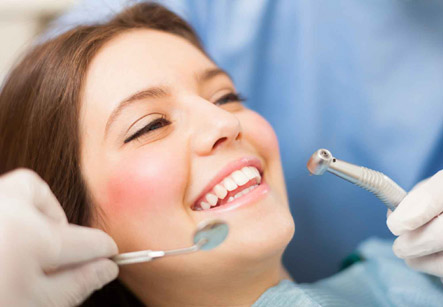Zirconia Crown
Introduction
Zirconium also called zirconia or cercon is becoming the material of choice for dental crowns. It is a very strong material able to withstand the wear and tear of daily use. It is translucent, quite similar to a natural tooth, reflecting light in much the alike way.
Zirconia crown is a type of all-ceramic crown which has almost replaced the metal crown. It is made from a very strong variety of fine ceramic called as zirconium oxide (ZrO2). It is widely used in space shuttles, thermal insulation, and artificial joints in medical field. Nowadays, this material has found its use in the field of dentistry due to its favorable properties like high strength, durability, resistance to oxidation and safety. Moreover, zirconia ceramic is devoid of silver ions which cause recession and discoloration of gums. It is used for repairing broken or crooked teeth, closing gaps, preventing allergic reactions, smile makeover. It takes minimum three sittings.
A Zirconia crown is strong and flexible. So it can be used for the back teeth where a great deal of stress forces of chewing and grinding exist.

Since zirconia has a very aesthetic effect, which may be important if patient’s crowns are to be in the front of mouth and is particularly relevant in cases where the crowns will be seen beside natural teeth. Full porcelain crowns may chip or break. This is overcome by making the crowns from metal, in this case the metal being zirconia, then fusing porcelain to the outside. The zirconia metal provides the strength whilst the porcelain provides the outward appearance on a normal tooth. Zirconium crowns allow light to pass through as with a normal tooth giving a natural look, unlike other metal cores which block the light. Zirconia crowns are also called as non-allergic crowns. Zirconia has found to be biocompatible since the body does not reject it.
Characteristics of a zirconia crown:
1. The traditional all-ceramic or porcelain crowns are weak and easier to chip or crack than the metal crowns. This drawback is overcome by the Zirconia crown due to its strength.
2. A Zirconia crown is strong and flexible. So it can be used for the back teeth where a great deal of stress forces of chewing and grinding exist.
3. Due to high level of light transmittance, a zirconia crown gives an appearance similar to natural tooth. So it is very suitable for use in front teeth also.
4. It does not cause gum discoloration and mottling.
5. Fine crystal structure makes zirconia durable and imparts resistance to wear over long time.
Advantages over metal:
1. Better natural look
2. No rusting
3. Mouth odor is not there
4. More long lasting
5. No conduction of heat, so lack of hot and cold sensitivity
6. No risk of metal allergy
7. No black line around the gums
Indications:
The zirconia crown is needed:
1. For protecting a week tooth from decay, from breaking or for holding parts of a cracked tooth.
2. For restoring broken or severely worn out tooth.
3. For supporting and covering a tooth with large filling.
4. For holding a permanent dental bridge between abutment teeth.
5. For covering a dental implant.
Zirconia Crown Procedure:
1. The cosmetic dentist prepares an impression of the tooth and sends it to a dental laboratory to make the crown.
2. A temporary crown is given to the patient to wear till the permanent crown is ready.
3. After about two weeks, generally the crown is ready and the zirconia crown is then cemented onto the tooth. Thus, only two visits are required for this procedure.
4. For stabilizing this structure, a filling is placed before placing a crown due to the loss of original tooth structure. Zirconia dental crowns have a running life of ten to fifteen years.
5. Sometimes, a flipper appliance is used in the place of temporary crown till the permanent crown is placed. A Flipper is a false tooth attached via either a wire or a plastic piece to the roof of the mouth awaiting the permanent crown.
Cost effectiveness:
Another advantage of zirconia crown is its cost effectiveness. This feature is also responsible for its popularity. Although they are certainly cheaper than porcelain crowns, their cost is almost same as gold-based metal core-porcelain crowns. However, taking the advantages of zirconia crowns into consideration, it is wise to invest in this option. As zirconia has long running life, it saves the additional efforts of replacing or repairing the crowns of other materials that may chip or break after a while.